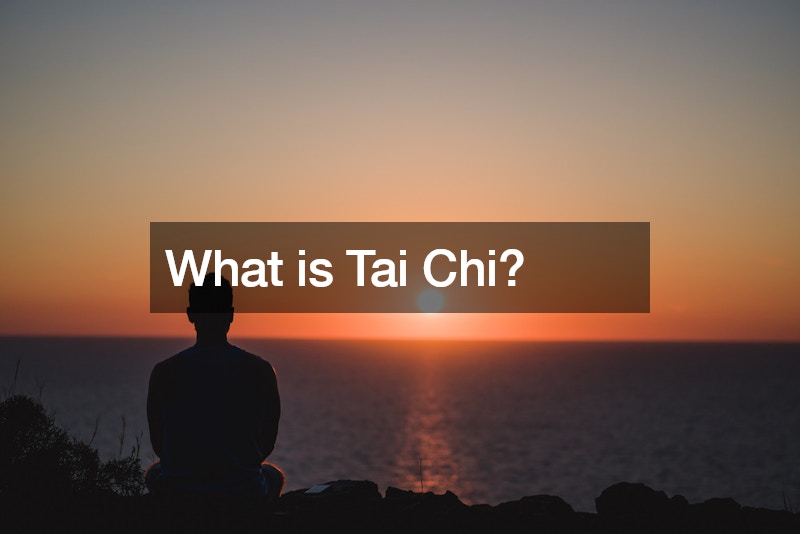Tai Chi, an ancient Chinese martial art, has transcended its origins to become a globally popular form of exercise, renowned for its holistic benefits for both the body and the mind. Rooted in Taoist philosophy, Tai Chi, also known as Tai Chi Chuan, emphasizes the cultivation of harmony and balance within oneself and with the universe. In this article, we delve into the essence of Tai Chi, exploring its origins, principles, and the transformative impact it can have on practitioners.
Origins of Tai Chi:
Tai Chi traces its roots back to ancient China, where it emerged as a martial art with deep philosophical underpinnings. The term “Taiji” translates to “supreme principle” or “great principle,” reflecting the concept of universal harmony and balance.
Initially developed as a method of self-defense, Tai Chi evolved to encompass a broader spectrum of physical and spiritual development.
Principles of Tai Chi:
At its core, Tai Chi embodies the principles of yin and yang, symbolizing the interplay of opposites and the quest for equilibrium. Practitioners learn to harmonize opposing forces within themselves, cultivating a balanced state of mind and body. Movements in Tai Chi are deliberate, flowing, and circular, emphasizing softness, flexibility, and relaxation over tension and rigidity.
Physical Benefits of Tai Chi:
Tai Chi offers a myriad of physical benefits that contribute to overall health and well-being. This ancient Chinese practice promotes flexibility, strength, and balance through its gentle yet dynamic movements. By engaging in Tai Chi regularly, individuals can improve their joint flexibility and range of motion, reducing the risk of injury and enhancing mobility.
Moreover, Tai Chi strengthens muscles, particularly in the legs and core, promoting stability and coordination. Its slow, deliberate movements also encourage proper posture and alignment, alleviating tension and discomfort in the body. Additionally, Tai Chi has been shown to improve cardiovascular health by reducing blood pressure and cholesterol levels.
Furthermore, the meditative aspect of Tai Chi can help alleviate stress and promote relaxation, which in turn supports immune function and overall vitality. Overall, Tai Chi provides a holistic approach to physical fitness, fostering a strong, flexible body and a calm, centered mind.
Mental and Spiritual Well-being:
Beyond its physical benefits, Tai Chi is renowned for its profound impact on mental and spiritual well-being. The meditative aspect of Tai Chi promotes mindfulness, inner calm, and emotional balance. Through focused breathing and mindful movement, practitioners cultivate a heightened sense of awareness and presence, allowing them to navigate life’s challenges with greater resilience and serenity.
Online Tai Chi:
In today’s digital age, the practice of Tai Chi has expanded into the realm of online learning. Online Tai Chi courses offer a convenient and accessible way for individuals to embark on their Tai Chi journey from the comfort of their homes. These courses provide comprehensive instruction in Tai Chi principles and movements, guiding beginners through step-by-step lessons to develop their skills and understanding of this ancient art form.
The Philosophy of Tai Chi:
At the heart of Tai Chi lies a profound philosophy deeply rooted in Taoist principles. Tai Chi, also known as Tai Chi Chuan, embodies the concept of harmony, balance, and interconnectedness with the universe. Central to its philosophy is the principle of yin and yang, symbolizing the complementary forces of nature and the perpetual cycle of change. Practitioners of Tai Chi seek to harmonize these opposing forces within themselves, cultivating a state of equilibrium and unity.
Tai Chi philosophy encourages individuals to embrace the natural rhythms of life, flowing with the currents of change rather than resisting them. Through mindful movement and focused breathing, practitioners learn to cultivate a heightened sense of awareness and presence in the present moment. Tai Chi teaches individuals to let go of tension, stress, and distractions, allowing them to connect deeply with their inner selves and the world around them.
The philosophy of Tai Chi extends beyond the physical practice, guiding individuals on a journey of self-discovery and personal transformation. By embracing the principles of balance, flexibility, and flow, practitioners of Tai Chi cultivate a deeper understanding of themselves and their place within the vast tapestry of existence. Ultimately, Tai Chi philosophy offers a timeless path to inner peace, vitality, and spiritual growth.
Conclusion:
Tai Chi transcends its origins as a martial art to offer a holistic path to health and well-being. With its emphasis on balance, harmony, and mindfulness, Tai Chi provides a transformative journey for both body and mind. Whether practiced in traditional settings or through online platforms, Tai Chi offers a timeless practice for modern-day living, guiding individuals on a path to greater vitality, serenity, and inner peace.
.


